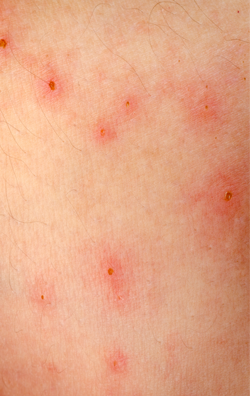
Asthma is a chronic condition that makes the lungs' airways swell and inflame. The muscles around the bronchial tubes in the lungs tighten, causing the airways to become sensitive and restricted. Thicker mucus is also produced, which contributes to the narrowing of the airways in the lungs.
Symptoms of asthma may include:
-
-Coughing, especially at night
-
-Wheezing
-
-Tightness in the chest
-
-Impaired breathing (short, quick or noisy)
The frequency and intensity of these symptoms may vary from person to person. When these symptoms are exacerbated, it is called an asthma attack or asthma flare.
What triggers asthma?
-
-Allergens such as mold, pollen, animal dander, dust-mites and cockroaches.
-
-Irritants such as:
-
*Tobacco smoke
-
*Scented products like perfumes
-
*Pollution, especially the particulate matter (PM) that's found in smoke, smog and diesel exhaust fumes. When the PM is 2.5mm in diameter or smaller, pollution is extremely hazardous to the lungs
-
-
-Intense feelings like stress, laughter or crying because they can restrict airflow and impair normal breathing patterns
-
-Additives found in food and wine, like sulfites
How can I manage my asthma?
If you are diagnosed with asthma, you can do a lot to manage and control your symptoms.
There are two basic types of medications used to control asthma: short-term medications that provide quick relief during attacks and long-term medications
You can also manage your asthma by avoiding your triggers.
Avoid allergens and irritants like smoke and pets, if you know they make your asthma worse.
Maintain a clean-living environment, with minimal dust and mold. Monitor environmental changes and air quality in your area on a regular basis.
Beware of alcohol-medication interactions; drinking alcohol (for example wine) and taking medications (such as aspirin) can trigger asthma
Be prepared for an asthma attack. Have medications, medical contacts and emergency information readily available.





